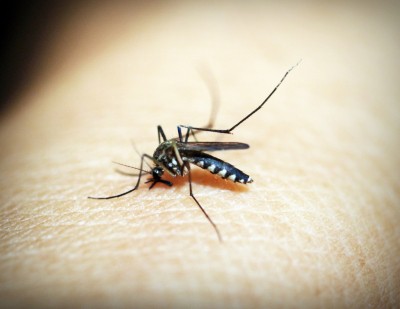London, Jan 2 : Multiple bouts of blood feeding by mosquitoes reduce the incubation period for malaria parasites and increase malaria transmission potential, said a study.
Given that mosquitoes feed on blood multiple times in natural settings, the results published in the journal PLOS Pathogens suggest that malaria elimination may be substantially more challenging than suggested by previous experiments, which typically involve a single blood meal.
Malaria remains a devastating disease for tropical and subtropical regions.
In natural settings, the female Anopheles gambiae mosquito — the major malaria vector — feeds on blood multiple times in her lifespan.
Such complex behaviour is regularly overlooked when mosquitoes are experimentally infected with malaria parasites, limiting our ability to accurately describe potential effects on transmission.
In the new study, the researchers examined how additional blood feeding affects the development and transmission potential of Plasmodium falciparum malaria parasites in An. gambiae females.
“We wanted to capture the fact that, in endemic regions, malaria-transmitting mosquitoes are feeding on blood roughly every 2-3 days,” said W. Robert Shaw from Harvard T.H. Chan School of Public Health in the US.
“Our study shows that this natural behaviour strongly promotes the transmission potential of malaria parasites, in previously unappreciated ways.”
The results showed that an additional blood feed three days after infection with P. falciparum accelerates the growth of the malaria parasite, thereby shortening the incubation period required before transmission to humans can occur.
Disclaimer: This story is auto-generated from IANS service.

